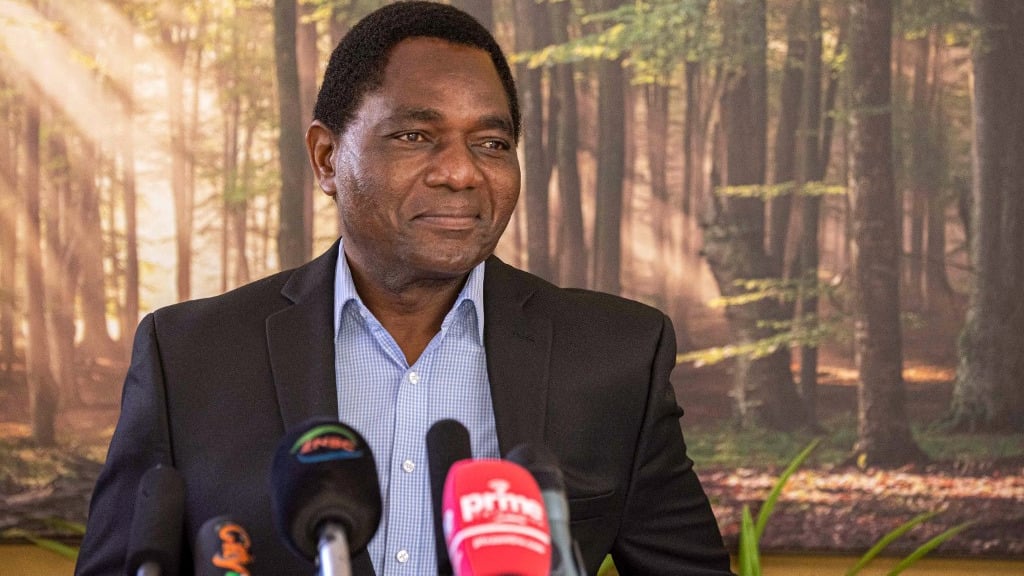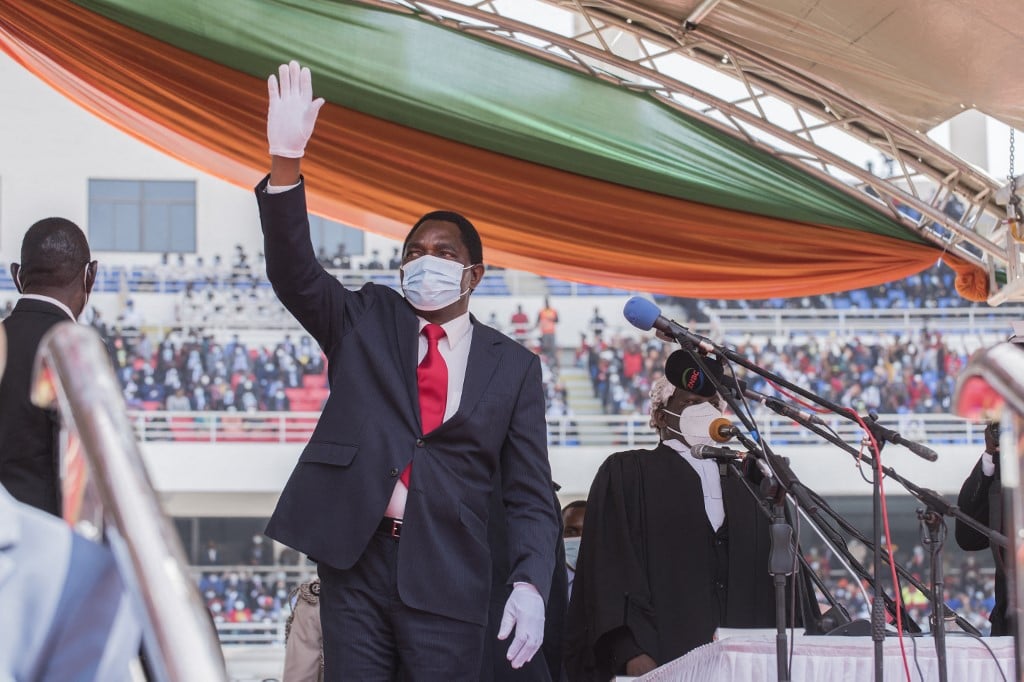Zambia’s longtime opposition leader Hakainde Hichilema was sworn in as president on Tuesday.
In his inauguration speech he promised a cheering crowd to restore prosperity, stability and jobs to Africa’s second-largest copper producer, which is mired in huge debt and recession owing to depressed commodity prices.
“It’s a new dawn. Time has come for all Zambians to be truly free,” he said.
On Friday the newly-elected president appointed Situmbeko Musokotwane as the new Minister of Finance. Musokotwane, who held the same post from 2008 to 2011, pledged to conclude talks with the IMF on a lending programme by October.

Spotlight on the economy after historic win
The electoral commission announced on August 12 that Hichilema, a former executive at an accounting firm, had beaten President Edgar Lungu by more than one million votes.
Soldiers were deployed on the streets of the capital Lusaka during the vote following sporadic outbursts of violence between members of opposing parties in the run up to the election.
Lungu slammed the historic win as not “free and fair” but later conceded defeat by tweeting congratulations to his erstwhile rival:
“I would like to congratulate my brother, the president-elect, HE, Mr Hakainde Hichilema for becoming the 7th president,” he wrote.
“Let me also congratulate all those who participated in this general election and won at various levels. To those who did not, there is always another time,” he added cryptically.
Hichilema said: “This victory does not belong to me, but to the men and women of Zambia. You came out in large numbers, with great energy and passion, and you sent a clear and resounding message that has reverberated around the world. It is time for change.”
The decisive victory looks set to buoy rattled investor confidence amid a hostile regulatory environment in the mining sector, a Eurobond default in December and over $12bn in external debt. The new president will have to move quickly to agree a bailout with the IMF and revamp talks with creditors to stop further damage to the economy, experts say.
Zambia’s economy has borrowed heavily to bankroll questionable infrastructure projects since Lungu took power in 2015.
Central to keeping the southern African country’s economy afloat is to strike a debt deferral deal with China, Zambia’s largest creditor, says Eric Olander, managing editor of The China Africa Project website and podcast.
The murky details of Zambia’s Chinese debt profile has also made it harder to qualify for a lending programme with the IMF, leading to calls that Hichilema should pass legislation that will require all government loan contracts to be made public. Officials in Washington are privately concerned that any debt relief will be used to repay China instead of engineering economic growth, Olander says.
“To stop the country from sinking deeper into financial despair, the president-elect will have to use some of that hard-earned political capital to reset relations with China, Zambia’s most important bilateral creditor and one of its largest trading partners. It’s not going to be easy, but he can’t fix the economy without changing the terms of engagement with creditors in Beijing,” he says.
The IMF is also expected to push for key economic reforms shortly after the election before signing off on a loan agreement. Hichilema had promised to ease the regulatory environment and bring back foreign investment to the mines in the run up to the election, though analysts say it is too early to tell whether his tenure will be a continuation of Lungu’s legacy of aggressive resource nationalism.
“I think it’s too early to tell how he’s going to handle the mining company issue given that the debt crisis is probably a more pressing concern at this time. Furthermore, if we see the difficulties that Felix Tshisekedi is having in the DRC to renegotiate mining contracts, I think the president-elect may opt to wait a bit before taking on that issue,” says Olander.
The country is locked in dispute with several mining companies including India-based Vendanta and Anglo-Swiss Glencore. In May 2019, the government accused Vendanta of failing to honour license conditions and seized the company’s Konkola Copper Mines.
A major foreign exchange earner, analysts say the government must act quickly to reach agreements with foreign companies and ramp up the output of mineral exports, especially with copper prices at a ten-year high.
Want to continue reading? Subscribe today.
You've read all your free articles for this month! Subscribe now to enjoy full access to our content.
Digital Monthly
£8.00 / month
Receive full unlimited access to our articles, opinions, podcasts and more.
Digital Yearly
£70.00 / year
Our best value offer - save £26 and gain access to all of our digital content for an entire year!
 Sign in with Google
Sign in with Google 



